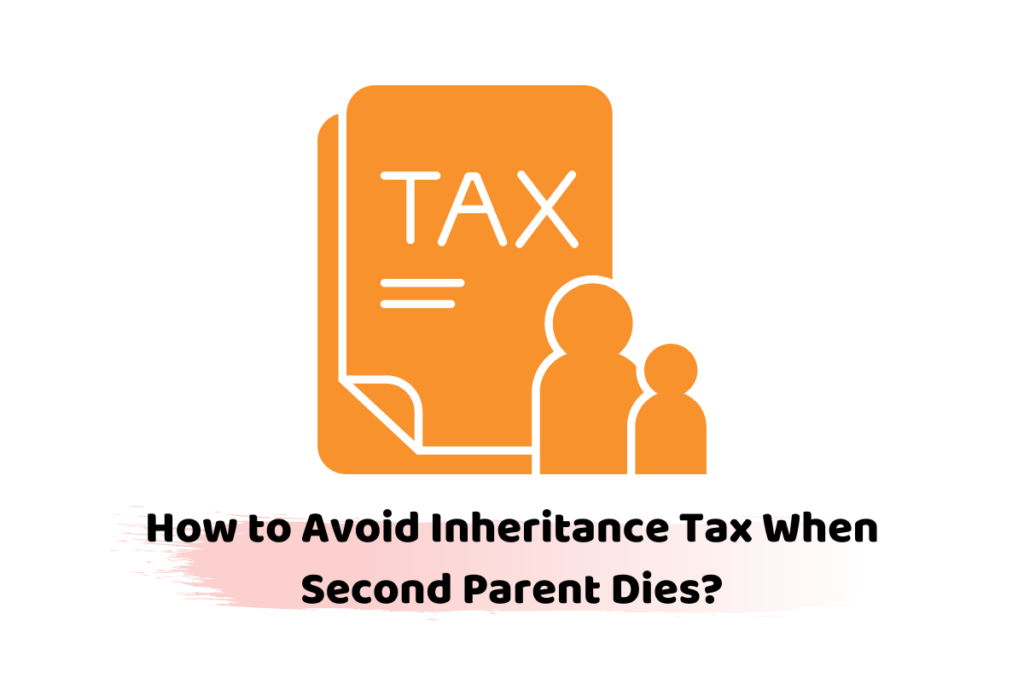In the UK, inheritance tax is a significant concern for many families due to the potential financial implications. It can have on their estate and future generations. Inheritance tax when a second parent dies, the first parent’s estate may already have been subject to inheritance tax. Leaving their children or other beneficiaries with a smaller inheritance. This is when the second parent dies in the UK.
Providing insights on how to effectively minimise or avoid inheritance tax when the second parent dies in the UK. We will also address common concerns and challenges related to inheritance tax planning. Such as understanding the complexities of the UK’s inheritance tax rules and navigating the available tax reliefs.
Get in touch with one of our experts to learn more about inheritance tax when second parent dies. We are available from 9:00 am – 05:30 pm Monday to Friday.
How to Avoid Inheritance Tax When a Second Parent Dies?
Avoiding inheritance tax when the second parent dies in the UK involves a combination of financial planning and legal strategies. As well as understanding the available tax reliefs and allowances. Here is a comprehensive guide on how to minimise or avoid inheritance tax liabilities when dealing with the death of a loved one:
Inheritance Tax Rules for Couples
When a couple is married or in a civil partnership, they can pass any unused nil-rate band to the surviving spouse or civil partner.
Utilise Gifts and Exemptions
An individual can gift up to £3,000 per year without incurring any tax consequences. In addition, gifts given on or before marriage or civil partnership are generally exempt from inheritance tax. This is provided the couple lives together for at least seven years.
Plan with Life Insurance
Purchasing life insurance can help cover inheritance tax liabilities when a second parent dies.
When to Start Estate Planning for this Purpose?
Estate planning is the process of organising and managing an individual’s assets, liabilities, and overall financial affairs in preparation for their incapacity or death. It is an essential component of ensuring that your wishes are carried out. Your loved ones are provided for after you pass away.
Given the complexity and importance of estate planning, it is advisable to start the process as early as possible, ideally during your prime working years. Here’s a comprehensive guide on when to start estate planning and the key considerations to keep in mind:
Early Stages of Adulthood
While you may not have accumulated significant assets during your early twenties or thirties, it is still beneficial to begin the estate planning process. This stage is an ideal time to create a will.
Becoming a Parent
Having children is another major milestone that necessitates estate planning.
Retirement
As you approach retirement, it is crucial to revisit your estate plan and make necessary adjustments. This includes evaluating your investment portfolio, updating beneficiary designations, and considering the implications of Social Security.
Incapacity or Illness
If you become incapacitated or diagnosed with a serious illness, it is essential to review and update your estate plan.
Changes in Financial Circumstances
Significant changes in your financial situation, such as inheriting a substantial sum or experiencing a major loss, may necessitate updates to your estate plan. It is essential to review and revise your plan to ensure that your assets are protected and distributed according to your wishes.
Preparing for the Sale of a Business or Large Asset
If you own a business or significant assets, it is crucial to incorporate these into your estate plan. To ensure a smooth transition and minimise tax liabilities for your heirs.
The Bottom Line
In conclusion, understanding inheritance tax when a second parent dies and planning for inheritance tax can be a complex and daunting task. Especially when dealing with the emotional aftermath of a loved one’s death. However, by taking proactive measures and seeking professional advice. It is possible to minimise or avoid inheritance tax liabilities on the second parent’s estate in the UK.
Key strategies include making full use of the available tax reliefs. Such as the nil-rate band and the residence nil-rate band, utilising gifts and exemptions, and establishing a trust.
Reach out to our expert professionals to get your queries answered instantly. We would love to come up with the best possible solutions to your queries about inheritance tax when second parent dies.
Disclaimer: All the information provided in this article on inheritance tax when second parent dies, including all the texts and graphics, is general in nature. It does not intend to disregard any of the professional advice.





















































